What Is a Sourcing Agent?
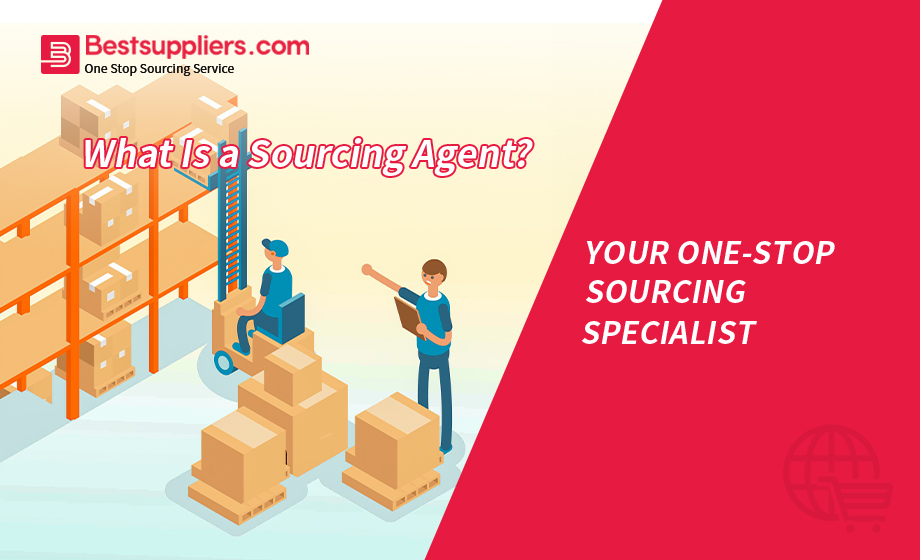
What Is a Sourcing Agent?
Imagine you have a business, and you want to sell a particular product. But there's a problem - you don't know where to get the product from or how to find reliable suppliers. This is where a sourcing agent comes in. A sourcing agent is like a middleman who helps businesses find suppliers and get the products they need.
A sourcing agent can be an individual or a company that specializes in this kind of work. They have the knowledge and connections to navigate both local and international markets to find the right suppliers for your business. Think of them as your guide in the world of procurement.
One of the main tasks of a sourcing agent is to identify reliable suppliers. They have a network of contacts and resources that they can tap into to find suppliers who can provide the products you need. They take the time to research and evaluate potential suppliers to ensure they are trustworthy and can meet your requirements.
Once the sourcing agent finds potential suppliers, they will negotiate prices and terms on your behalf. They have the skills and experience to get the best deals for you, helping you save money and maximize your profits. They also handle quality inspections to make sure the products meet your standards and specifications.
Logistics can be a complex aspect of the procurement process, but a sourcing agent takes care of it. They manage the transportation and shipping of the products from the supplier to your business. This includes handling paperwork, customs clearance, and coordinating the delivery to ensure everything arrives on time.
Overall, a sourcing agent is a valuable resource for businesses. They streamline the supply chain by taking care of the sourcing process, negotiating prices, conducting quality checks, and managing logistics. With their expertise and connections, they make the procurement process more efficient and help businesses source products effectively.
So, if you're looking to find reliable suppliers and source products for your business without the hassle, consider working with a sourcing agent. They can be your trusted partner in navigating the complex world of procurement, saving you time, and money, and ensuring smooth transactions.
What Does a Sourcing Agent Do?
A sourcing agent plays a crucial role in the procurement process, acting as a guide and facilitator between buyers and suppliers. Their responsibilities encompass various tasks that are essential for a successful sourcing experience.
- Supplier Identification: One of the primary tasks of a sourcing agent is supplier identification. They possess extensive knowledge and networks to find suitable suppliers that meet the buyer's specific requirements. This involves conducting research, evaluating the capabilities of potential suppliers, and verifying their legitimacy. The sourcing agent uses their expertise to identify reliable and reputable suppliers who can provide the products or services the buyer needs.
- Negotiations: Once potential suppliers are identified, the sourcing agent takes on the role of a negotiator. They engage in discussions with suppliers on behalf of the buyer, aiming to secure the most favorable prices, terms, and conditions. Their negotiation skills and market knowledge enable them to achieve mutually beneficial agreements that satisfy both the buyer and the supplier.
- Quality control: is another critical aspect of a sourcing agent's role. They perform rigorous inspections to ensure that the products meet the buyer's specifications and standards. This includes conducting pre-shipment inspections, product testing, and even factory audits to maintain consistent quality throughout the sourcing process. By ensuring that the products meet the desired quality requirements, the sourcing agent helps minimize the risk of receiving substandard or defective goods.
- Logistics Management: The sourcing agent also takes charge of logistics management. They handle the complex arrangements involved in the movement of goods from the supplier to the buyer's location. This includes managing documentation, coordinating customs clearance, and organizing transportation to ensure timely delivery. By overseeing the logistics process, the sourcing agent ensures that the products reach the buyer efficiently and without any unnecessary delays or complications.
- Relationship Building: Furthermore, a sourcing agent focuses on relationship building between the buyer and the supplier. They act as a bridge, fostering long-term relationships that are built on trust and open communication. Should any conflicts or issues arise during the procurement process, the sourcing agent works towards resolving them and maintaining a positive working relationship between the parties involved.
In summary, a sourcing agent fulfills several crucial responsibilities in the procurement process. They utilize their knowledge, networks, and negotiation skills to identify suitable suppliers, negotiate favorable terms, ensure product quality through inspections, manage logistics, and foster strong relationships. By providing these valuable services, a sourcing agent streamlines the sourcing journey for businesses, enabling them to find reliable suppliers, obtain quality products, and navigate the complexities of international trade.
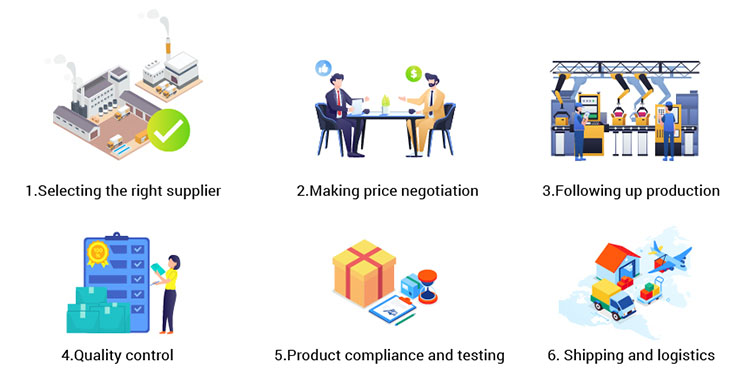
Advantages of A Great Sourcing Agent:
When it comes to sourcing products for a business, working with a great sourcing agent can offer several advantages that contribute to the success and efficiency of the procurement process. Here are some of the key benefits:
- Expertise and Knowledge: A reliable sourcing agent brings valuable expertise and knowledge to the table. They have a deep understanding of the industry, market trends, and supplier networks. This knowledge allows them to provide insights and guidance to businesses, helping them make informed decisions and navigate the complexities of the sourcing landscape. With their expertise, businesses can tap into new opportunities and stay ahead of the competition.
- Cost Savings: One of the significant advantages of working with a sourcing agent is their ability to negotiate the best prices and terms with suppliers. They have the skills and market knowledge to leverage relationships and find favorable deals for their clients. By securing competitive pricing, businesses can achieve significant cost savings, improving their profitability and competitiveness in the market.
- Quality Assurance: Sourcing agents play a crucial role in ensuring product quality. They conduct thorough inspections, audits, and quality checks to minimize the risk of receiving substandard or defective products. By verifying the quality and compliance of the products, sourcing agents protect the interests of the buyer and help maintain a consistent level of quality throughout the sourcing process.
- Time Efficiency: Outsourcing the sourcing process to a dedicated agent saves businesses valuable time and resources. Sourcing agents handle tasks such as supplier research, negotiations, and logistics, allowing businesses to focus on their core operations. By entrusting these responsibilities to experts, businesses can streamline their operations and improve overall efficiency.
- Risk Mitigation: International trade can present various risks, including language barriers, cultural differences, and legal complexities. A reliable sourcing agent has the necessary expertise to mitigate these risks effectively. They understand the nuances of international trade, navigate the challenges associated with cross-border transactions, and ensure compliance with regulations. By minimizing potential pitfalls, sourcing agents contribute to smoother transactions and mitigate risks for businesses.
- Supplier Network: A great sourcing agent has a wide network of reliable suppliers. This extensive network provides businesses with access to a diverse range of products and suppliers. It allows businesses to explore different options, find the best fit for their requirements, and source products that meet their specific needs. The sourcing agent's supplier network provides businesses with a competitive edge, ensuring access to a reliable and diverse supply base.
In conclusion, working with a great sourcing agent offers several advantages for businesses. From expertise and cost savings to quality assurance and risk mitigation, sourcing agents play a vital role in streamlining the procurement process. They provide valuable insights, save time and resources, and offer access to a network of reliable suppliers. By leveraging the expertise of a sourcing agent, businesses can enhance their sourcing capabilities, improve efficiency, and achieve their procurement goals.
Difference Between Sourcing Agent, Distributor, Wholesaler, Trading Company:
While sourcing agents, distributors, wholesalers, and trading companies all play a role in the supply chain, there are distinct differences between them:
- Sourcing Agent: A sourcing agent helps businesses find suppliers and source products. They facilitate the procurement process, negotiate with suppliers, and ensure product quality. Sourcing agents primarily act as intermediaries between the buyer and the supplier.
- Distributor: A distributor purchases products from manufacturers or suppliers and sells them to retailers or end customers. They take ownership of the products and are responsible for marketing, distribution, and managing inventory. Distributors often focus on specific product categories or industries.
- Wholesaler: Wholesalers buy products in bulk from manufacturers or distributors and sell them to retailers or other businesses. They serve as intermediaries, offering competitive pricing and convenient access to a variety of products. Wholesalers typically operate within specific industries or geographical regions.
- Trading Company: A trading company engages in the buying and selling of products. They act as middlemen, facilitating trade between buyers and sellers. Trading companies often have a broader scope and may offer services such as sourcing, distribution, logistics, and financing.
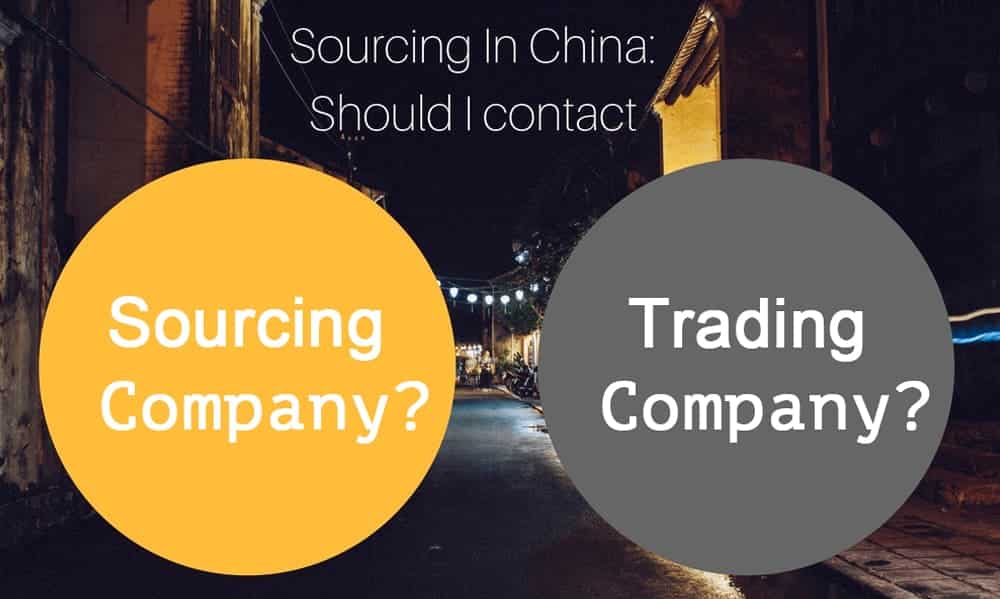
The 3 Different Types of Sourcing Agents:
Sourcing agents can be classified into three primary types based on their scope and location:
- Local Sourcing Agent: Local sourcing agents are based in the country where the products are being sourced from. They possess extensive knowledge of the local market, language, culture, and business practices. Local agents provide on-the-ground support, making them valuable for businesses looking to source from a specific country or region.
- Overseas Sourcing Agent: Overseas sourcing agents are located in the buyer's home country but specialize in sourcing products from overseas markets. They have expertise in international trade, supplier networks, and logistics. Overseas agents bridge the gap between the buyer and the supplier, handling sourcing processes in distant markets.
- Independent Sourcing Agent: Independent sourcing agents work independently and cater to multiple clients simultaneously. They offer a wide range of sourcing services and typically have expertise in specific industries or product categories. Independent agents provide personalized attention and flexibility in tailoring sourcing solutions to meet specific buyer requirements.
How Much Does a Sourcing Agent Cost?
When considering hiring a sourcing agent, it's essential to understand the costs involved. The cost of a sourcing agent can vary depending on several factors, and it's important to consider these factors before making a decision.
One of the key factors that influence the cost of a sourcing agent is the scope of services required. Different businesses have different needs, and the more extensive the services required from the sourcing agent, the higher the cost is likely to be. For example, if you need assistance with supplier identification, negotiations, quality control, and logistics management, the cost may be higher compared to only needing help with supplier identification.
Another factor that affects the cost is the complexity of the products being sourced. Some products may require more effort and expertise to source due to their technical specifications, specialized manufacturing processes, or unique requirements. Sourcing agents may charge higher fees for sourcing complex products that require extensive research, evaluation, and coordination.
The location of the suppliers is also a factor that impacts the cost. If the sourcing agent needs to work with suppliers located in remote or hard-to-reach areas, additional costs may be incurred for travel, communication, and logistics. On the other hand, if the suppliers are located in a centralized region with excellent infrastructure, the costs may be lower.
The level of expertise of the sourcing agent can also influence the cost. Experienced and highly skilled sourcing agents who have a proven track record may charge higher fees for their services. Their expertise and knowledge can bring significant value to the sourcing process, which is reflected in the cost.
In terms of the cost structure, sourcing agents typically use one or a combination of the following fee structures:
- Commission Percentage: Sourcing agents may charge a percentage of the total order value as their commission. The commission rate can vary depending on the complexity and value of the products being sourced. It usually ranges from 3% to 10% or even higher.
- Flat Fee: Some sourcing agents charge a fixed fee for their services, regardless of the order value. This fee structure provides transparency and predictability in terms of cost, as you know exactly how much you will be paying for their services.
- Hourly Rate: In certain cases, sourcing agents may charge an hourly rate for specific tasks or consulting services. This structure allows for more flexibility, particularly when only specific assistance or guidance is needed.
It is crucial to have open and transparent communication with the sourcing agent regarding the cost structure. Discuss and negotiate the fees and payment terms upfront to ensure clarity and alignment. This will help you understand the cost implications and make an informed decision based on your budget and requirements.
Remember, the cost of a sourcing agent should be considered about the value they bring to your business. A reliable and efficient sourcing agent can potentially save you money through cost-effective negotiations, quality control, and streamlined logistics, ultimately benefiting your bottom line.
How To Find the Best Sourcing Agent for Your Business?
When it comes to finding the best sourcing agent for your business, it's important to approach the selection process with careful consideration and thorough research. Here are key steps to help you in finding the right sourcing agent:
- Define Your Requirements: Start by clearly outlining your sourcing needs. Consider factors such as product specifications, desired quantity, quality standards, budget constraints, and project timelines. Understanding your requirements will allow you to assess the suitability of potential sourcing agents accurately.
- Research and Shortlist: Conduct comprehensive research to identify potential sourcing agents. Utilize online directories, industry forums, and professional networks to find reputable agents with relevant experience in your industry or product category. Shortlist the agents who have a strong track record, relevant expertise, and positive client testimonials.
- Evaluate Expertise: Assess the expertise and capabilities of the shortlisted sourcing agents. Look for agents who demonstrate a deep understanding of your industry, specific product requirements, and target markets. Consider their knowledge of supplier networks, quality control processes, and negotiation skills. A sourcing agent with expertise aligned with your business needs will be better equipped to handle your sourcing requirements.
- Check References: Request references from the sourcing agents and reach out to their previous or current clients. Inquire about their experiences working with the agent, including their performance, communication effectiveness, and overall satisfaction level. These references will provide valuable insights into the agent's reliability, professionalism, and ability to deliver results.
- Communication and Transparency: Evaluate the agent's communication style, responsiveness, and transparency. Effective communication is essential for successful collaboration. Ensure that the agent is fluent in your preferred language and can bridge any cultural or communication gaps that may arise during the sourcing process. Open and transparent communication fosters a strong working relationship.
- Visit the Agent's Location: If feasible, consider visiting the sourcing agent's office or arrange a meeting in person. This allows you to establish a personal connection, assess their infrastructure, and gain a deeper understanding of their operations and capabilities. Meeting face-to-face can provide additional reassurance and build trust in the partnership.
- Contract and Agreement: Once you have selected a sourcing agent, it is crucial to create a detailed contract or agreement that outlines the scope of services, fees, responsibilities, timelines, and any other relevant terms. Seek legal advice if needed to ensure clarity and protection of both parties' interests. A well-defined contract sets clear expectations and provides a solid foundation for a successful collaboration.
By following these steps, you can find a sourcing agent who aligns with your business requirements and becomes a trusted partner in your sourcing endeavors. Careful evaluation, clear communication, and thorough research are key to establishing a successful and fruitful partnership with a sourcing agent who can help you achieve your sourcing goals.
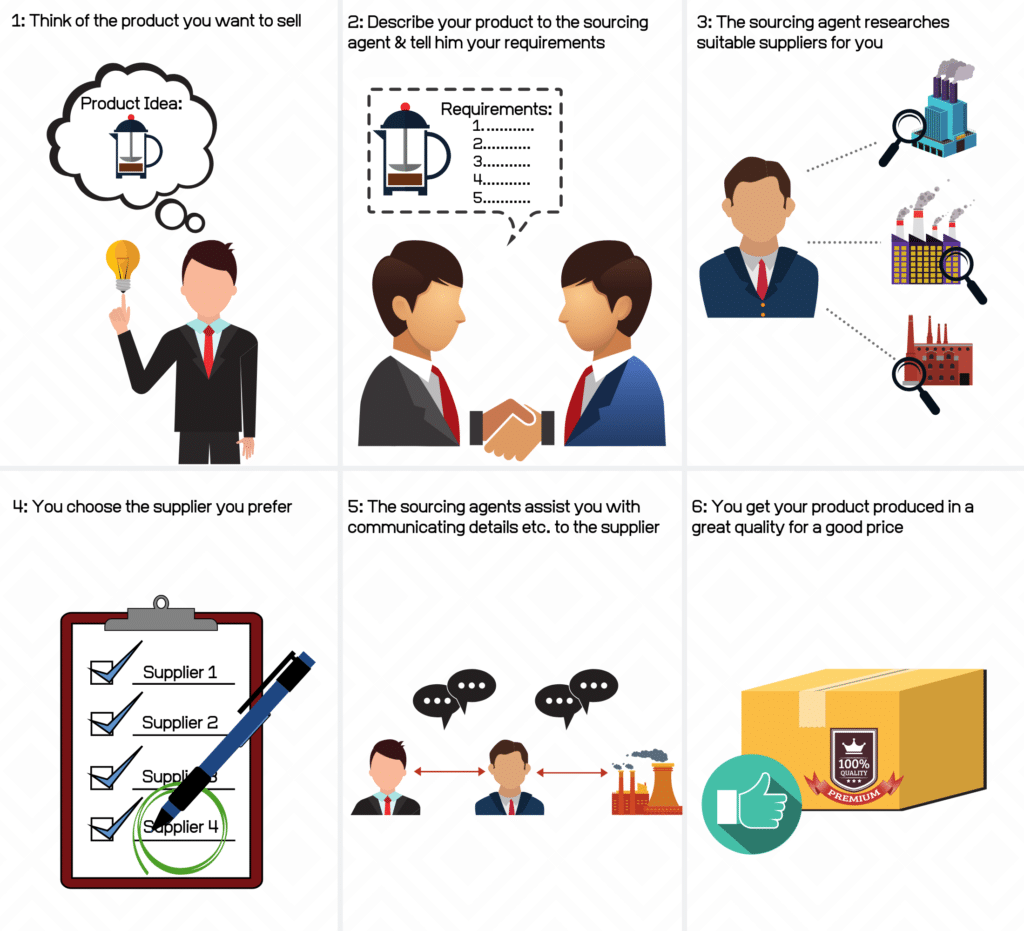
Sourcing VS. Procurement:
While sourcing and procurement are related, they are distinct concepts within the supply chain management process:
- Sourcing: Sourcing refers to the process of identifying and selecting suppliers to obtain products or services. It involves evaluating supplier capabilities, negotiating contracts, and establishing relationships. Sourcing focuses on finding the most suitable suppliers that meet the buyer's requirements in terms of price, quality, delivery, and other factors.
- Procurement: Procurement encompasses the entire process of acquiring goods or services, starting from sourcing and extending to purchase order placement, logistics management, and payment. It encompasses activities such as supplier evaluation, contract management, purchase order processing, inventory management, and supplier relationship management.
In summary, sourcing is a subset of the broader procurement process, specifically focusing on supplier selection and relationship management.
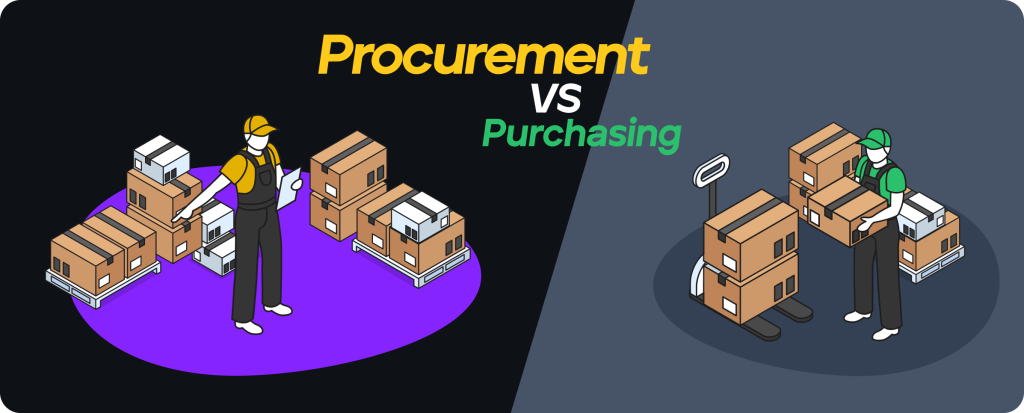
What is Product Sourcing?
Product sourcing refers to the process of finding and selecting suppliers to obtain products for a business. It involves identifying potential suppliers, negotiating agreements, and managing the procurement of goods. Product sourcing is a critical aspect of supply chain management, ensuring the availability of quality products at competitive prices.
Effective product sourcing involves thorough market research, supplier evaluation, and negotiation skills. It requires understanding customer demand, identifying reliable suppliers, ensuring quality control, and optimizing costs. Product sourcing can be done domestically or internationally, depending on the buyer's requirements and market dynamics.
Successful product sourcing enables businesses to secure reliable suppliers, maintain consistent product quality, and enhance profitability through cost savings and competitive pricing.
What is a Purchasing Agent?
A purchasing agent, also known as a buyer or procurement specialist, is an individual or entity responsible for procuring goods or services on behalf of a company or organization. Purchasing agents play a vital role in the procurement process, ensuring the timely and cost-effective acquisition of necessary resources.
Purchasing agents are responsible for supplier identification, negotiation of purchase terms, order placement, and managing relationships with suppliers. They work closely with various stakeholders within the organization, including department heads, finance teams, and suppliers, to ensure alignment with business goals and objectives.
Effective purchasing agents possess strong analytical skills, market knowledge, negotiation abilities, and the ability to build and maintain supplier relationships. They contribute to cost savings, quality assurance, and overall supply chain efficiency.
What Is Low-Cost Country Sourcing?
Low-cost country sourcing (LCCS), also known as offshore sourcing, refers to the practice of procuring goods or services from countries with lower production costs compared to the buyer's home country. The primary motivation behind low-cost country sourcing is to achieve cost savings through reduced labor costs, favorable exchange rates, and lower overhead expenses.
Many businesses opt for low-cost country sourcing to take advantage of cost differentials and remain competitive in the global marketplace. Countries such as China, India, Vietnam, and Bangladesh are commonly chosen for LCCS due to their lower labor and manufacturing costs.
However, low-cost country sourcing also presents challenges such as longer lead times, language barriers, cultural differences, and potential risks related to quality control and intellectual property protection. Businesses must carefully evaluate the trade-offs and implement appropriate risk mitigation strategies when engaging in low-cost country sourcing.
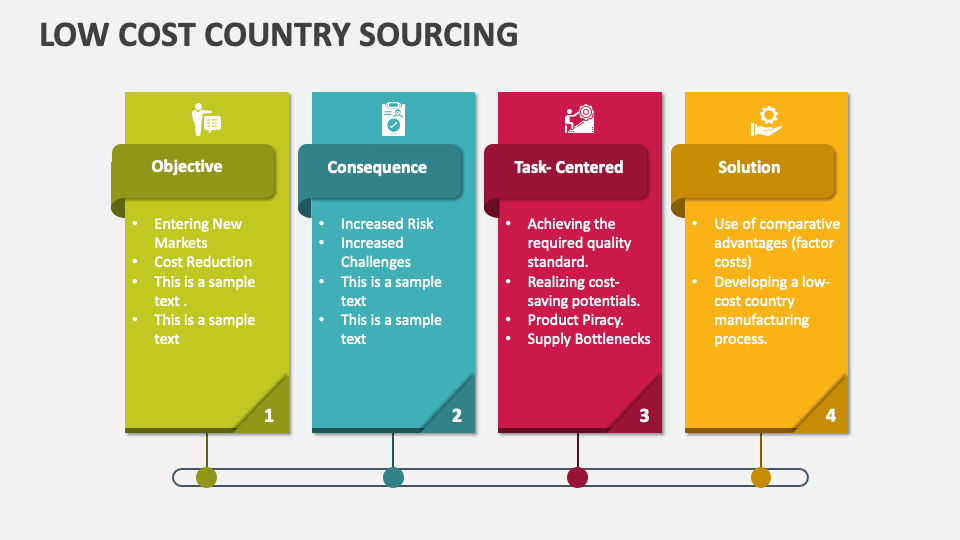
How to Source from Asia?
Sourcing products from Asia has become increasingly popular for businesses worldwide due to the region's vast manufacturing capabilities, competitive prices, and diverse product offerings. However, navigating the complexities of sourcing from Asia can be a daunting task for those unfamiliar with the process. If you want to know the secrets of successful sourcing from Asia and uncover the practical tips that will help you streamline your sourcing efforts and unlock the vast potential of this dynamic region. To explore this topic in more detail. Let’s discuss this further here.
Conclusion
Finding the right sourcing agent is a crucial step for businesses looking to streamline their procurement process and source products efficiently. A great sourcing agent brings expertise, industry knowledge, and supplier networks to the table, enabling businesses to secure reliable suppliers, maintain product quality, and optimize costs.
By understanding the role of a sourcing agent, the differences between sourcing, procurement, and related entities, and leveraging online platforms and resources, businesses can navigate the complexities of global sourcing and reap the benefits of a well-managed supply chain.
Remember to conduct thorough research, evaluate potential sourcing agents based on their expertise and track record, and establish clear communication and contractual agreements. With the right sourcing agent by your side, you can confidently source products, enhance your business operations, and stay competitive in the dynamic marketplace.

